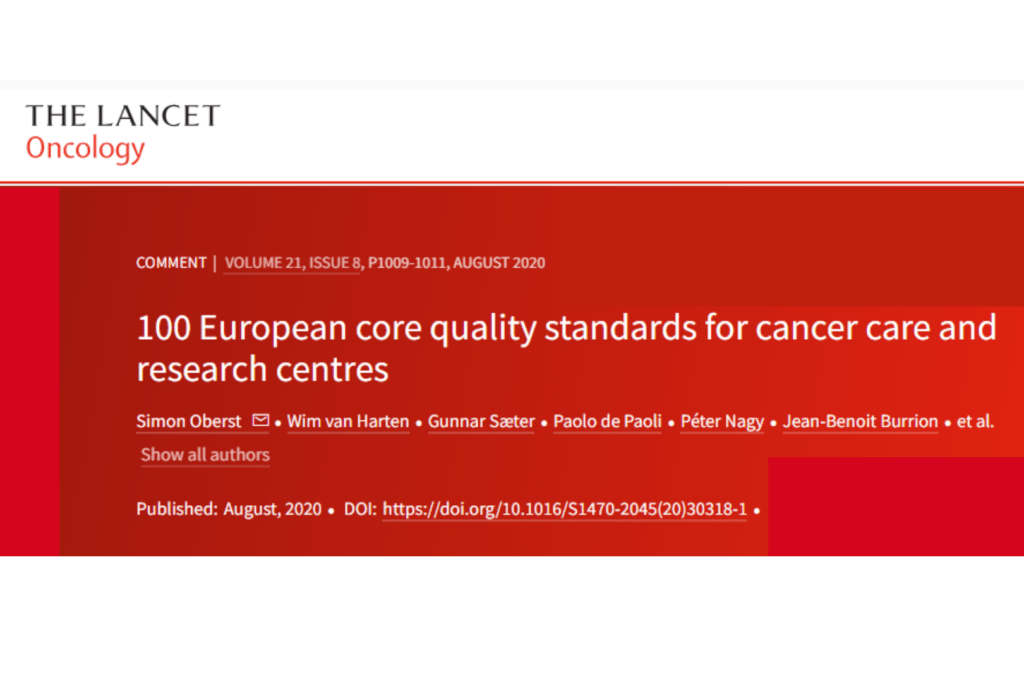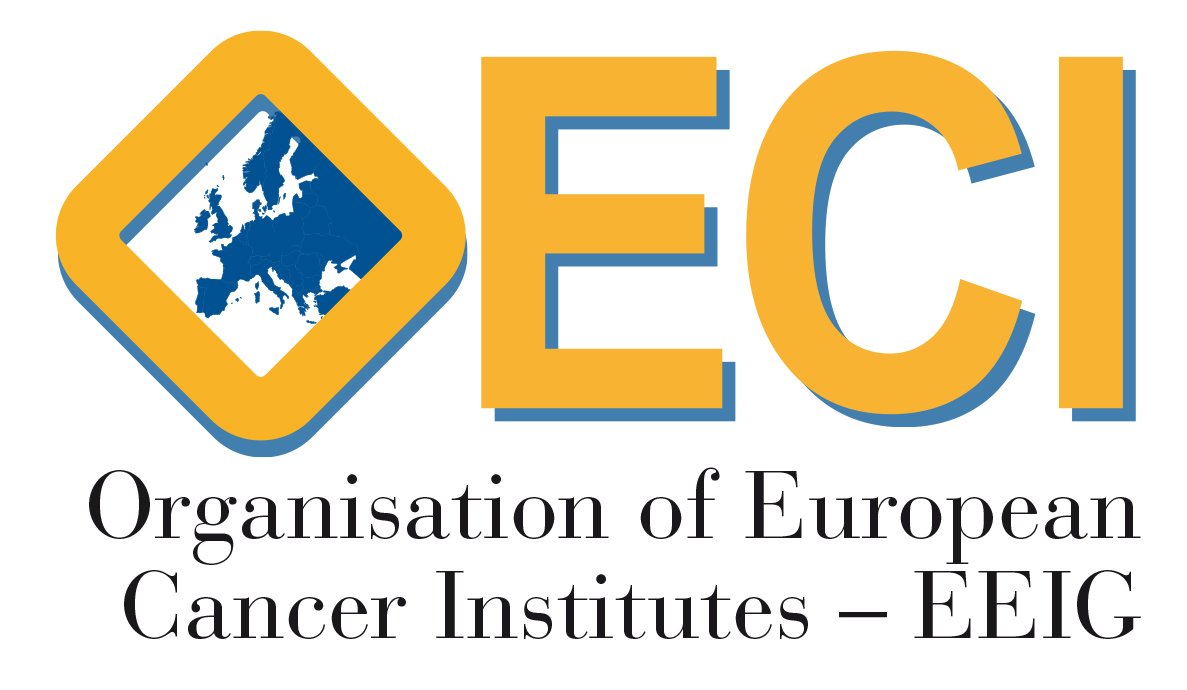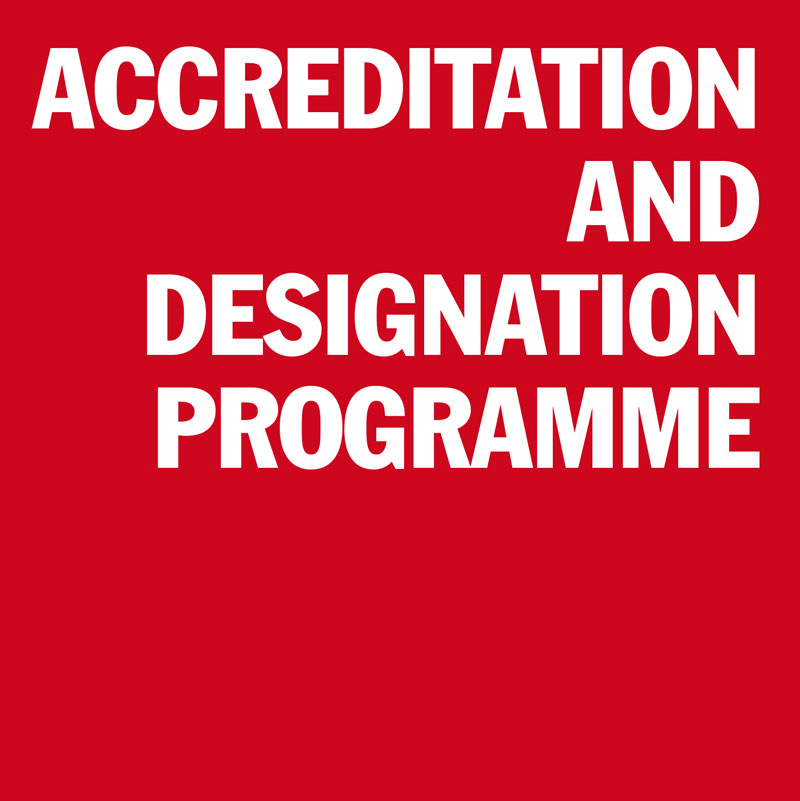In August 2020, the Accreditation and Designation Board of OECI published the results of two years revision work on the Quality Standards for our cancer centres in Europe. Part of this exercise was to select by consensus the Core Standards for quality care and research infrastructure which would be regarded as essential to apply across Europe, and which OECI will use as core requirements in every (re-)accreditation of a cancer centre, and require full evidence of compliance. .
The core standards numbered 100, and these were published in the August edition of Lancet Oncology [Oberst, S. (2020) '100 European core quality standards for cancer care and research centres', Lancet Oncology 21 (8) pp2009-1011, DOI:
https://doi.org/10.1016/S1470-2045(20)30318-1.]
The recommendations of ISQua, following their review and accreditation of the OECI Manual 2.0 standards, were implemented. The OECI Accreditation and Designation Board decided that new standards were required around molecular pathology, nuclear medicine, radiology, radiotherapy and surgical oncology, and that quality standards on prevention services, patient-centred care, patient involvement and patient survivorship should be strengthened. The input from acknowledged experts in these fields, and of patient groups, was obtained, to inform the stages of decision-making.
Integral of this whole process was the decision about which of the standards in each chapter were absolutely core to the quality programme, defined as: “fundamental to good quality of care or research, requiring structural evidence of compliance during the peer review at every 5 year re-accreditation”. This also had the objective of facilitating a lighter administrative burden during re-accreditation exercises. The selection of the Core Set was made by formal decisions of the Accreditation Board, based on consensus, at each stage of the process, and validated by the Expert Societies and Patient Groups below. An expert meeting was held on 10 April 2019 in Brussels with participants from 10 European Societies and Patient Groups including ECCO, ESTRO, EORTC, EONS, ECPC, ECL, ESMO, CCE, CPE, EACS, and OECI peer review teams. Particular foci for discussions were: patient involvement and empowerment; multidisciplinarity; supportive and palliative care; research; clinical research and education; governance and organisation of cancer centres.
The resulting output from the meeting was sent for review to 94 OECI cancer centres for comment and input. Detailed feedback was received from 14 OECI Centre members. The Revised Standards were presented at the OECI Annual Oncology Days on 13 June 2019 in Bari, Italy, and further input was taken from the assembly. Final approval to the new Standards was given by the OECI Board in June 2019.
The whole set of revised Quality Standards and Indicators in Manual 3.0 have recently been publishedi,ii. The resulting set of 100 Core Standards (representing 27% of the full set of standards) are integral to Manual 3.0 which OECI has been implemented in the Accreditation Programme from 1 January 2020.
We believe that the 100 Core Quality Standards for cancer care and research centres can be regarded as a consensus across Europe, deriving from professionals and patients, for years to come. Their unique feature (distinguishing them, for instance, from standards in the US and Germany) are that they combine standards on both cancer care and research infrastructure, and the integration between those two to drive practice changes, supported by educational priorities. Thus they are the most suitable vehicles to evaluate Comprehensive Cancer Centres and other large Cancer Centres in Europe, which are the engine rooms of innovative research and highest quality cancer care. This will be fundamental to the aims of the EU Cancer Mission.
Simon Oberst, Chair Accreditation and Designation Programme


